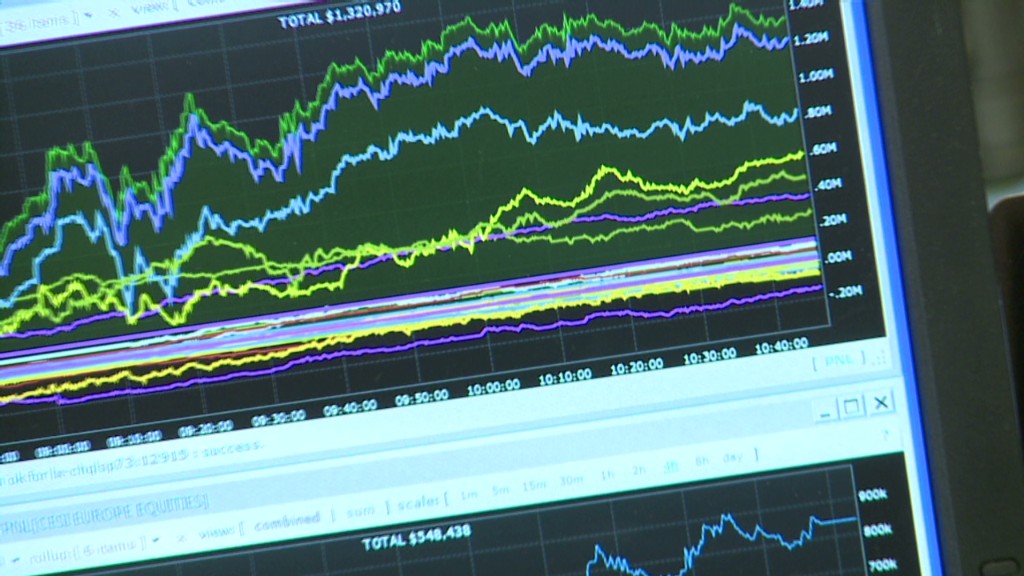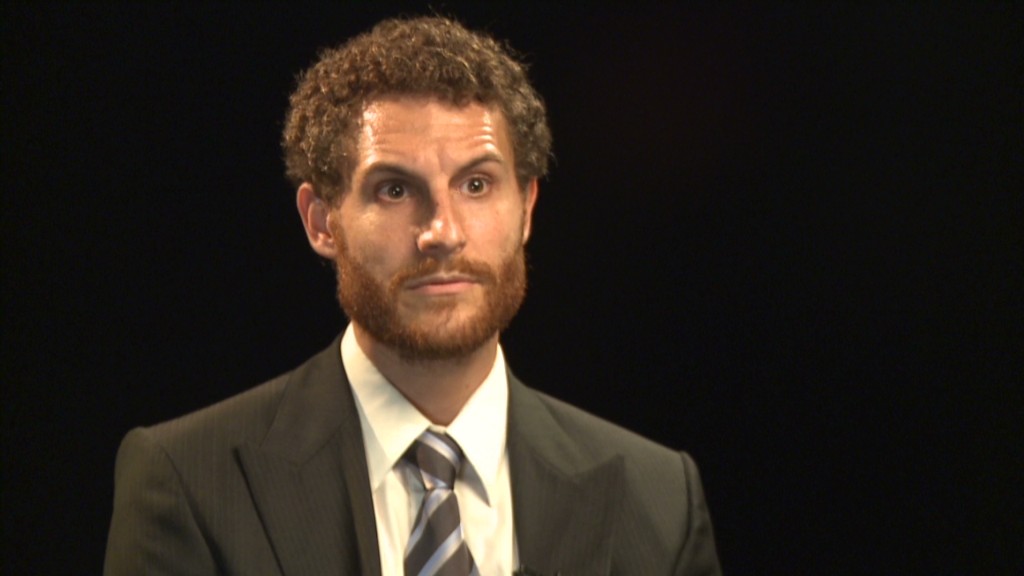
As high speed trading continues to gain traction, individual investors may be getting the short end of the stick.
High speed trading already accounts for roughly half of all stock trading volume in the U.S., according to Rosenblatt Securities.
At the same time, one out of every three trades take place "off exchange" through so-called dark pools or internal trading channels.
The problem with those trades: a lack of transparency.
Unlike the New York Stock Exchange (NYX), non-public exchanges don't show what someone is willing to pay to buy or sell a stock. Critics say that allows high speed traders take advantage of both large and small investors.
High speed trading firms buy and sell millions of stocks every second of the day. The moment they sense a big order is coming, they can quickly jump in and out of the market, pushing prices sharply higher or lower, and making a tidy profit before other investors even have a chance.
Trading firms get paid fees every time they buy or sell a stock on the public market. They also pay to list buy and sell orders, but those fees are much smaller.

"Institutional investors are paying more and more to get large sized orders done," said Dave Lauer, a former high speed trader.
And while many advocates of faster, more computerized trading say that trading overall has never been cheaper, recent research paints a different picture.
Investors are responsible for paying the so-called spread, or difference between how much it costs to buy and sell a stock. And that has widened in recent years, according to research from the University of Mississippi.
Related: Favorite stocks of high speed traders
Meanwhile, high speed trading firms, such as Knight Capital (KCG) and Citadel, promise to give investors the best possible price. But these firms are only forced to match the best possible price in the public markets, leaving them a lot of wiggle room.
Citadel executes roughly 14% of all U.S. stock trades, including those from brokers like TD Ameritrade (AMTD).
Citadel's computers instantaneously decide whether to fill the order internally or route it to one of 13 exchanges, including the NYSE and Nasdaq (NDAQ), or one of 50 or so dark pools -- exchanges where buyers and sellers can submit bids without disclosing them to the public markets.
"What Citadel does is knit together all that liquidity in the market, and we ensure that we get the best prices available for our clients," said Jamil Nazarali, Citadel's head of electronic execution.
Critics say the very fractured nature of U.S. stock trading has created a world where high speed traders can find nooks and crannies within the market to outrun other investors.
Take a company like Express Scripts (ESRX). 55% of the trading in the pharmaceutical company's stock happens "off exchange."
"There is nothing to show that the prices we see are accurate and that they fairly reflect the value of a company," argued Lauer.
Related: The computers that run the stock market
Citadel and other brokers say they can only do so much when one-third of the market is essentially dark.
"I can say to my customers that you are getting the best available bid or price out there, but if there is someone that is willing to pay and they're not telling us, and they're not posting on an exchange, you know, that's just, that's just how the market works," said Nazarali
Investors may just be missing out on a penny or two a trade, but "we have learned day in and day out that compounding interest is what builds long-term wealth," said Lauer.
All those lost pennies could add up.


